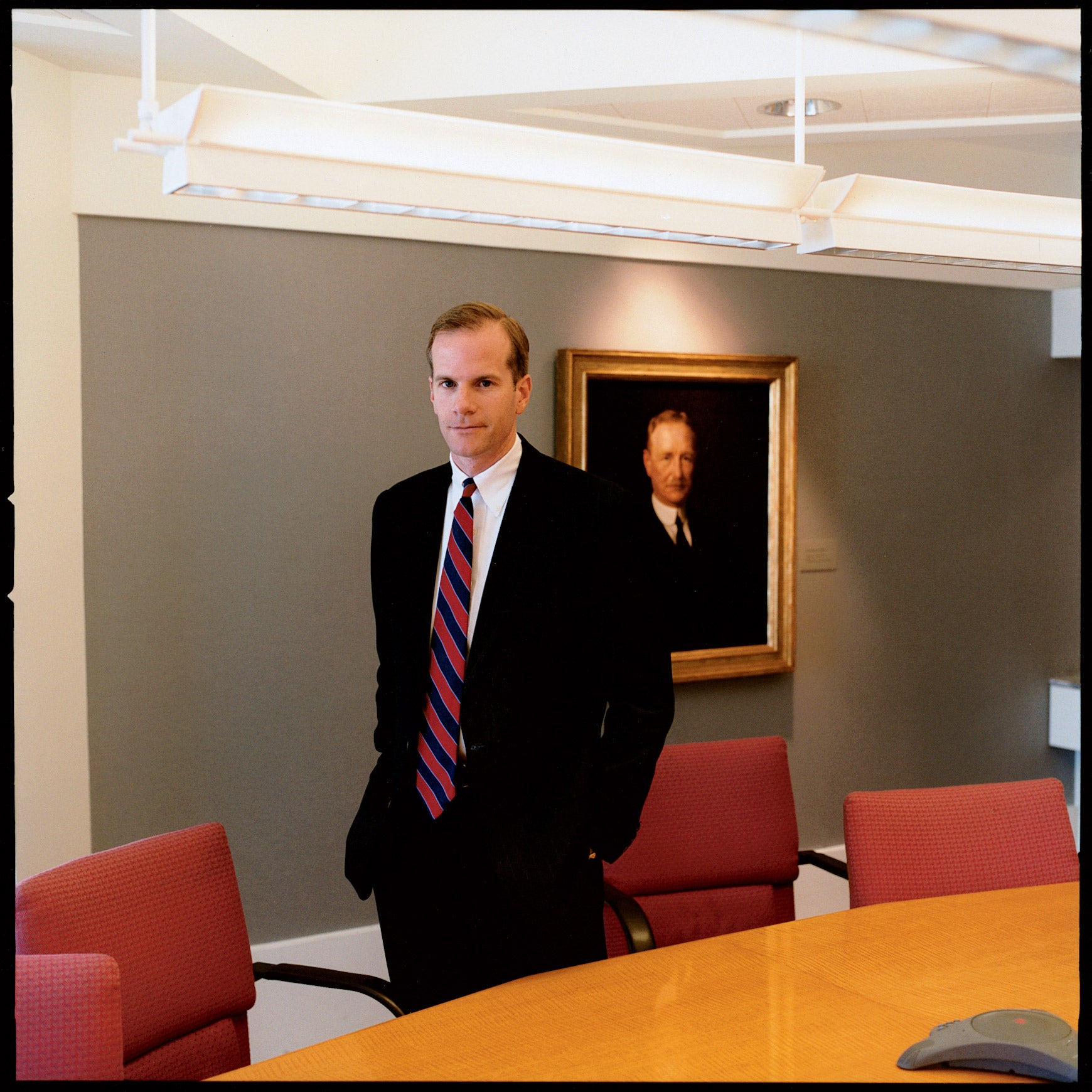Depending on your perspective, Kourosh Kenneth Hamidi may be either a crank or a prophet. But William McSwain ’00 wants to keep the Internet free for both.
Beginning as a student at HLS, McSwain supported and eventually represented Hamidi in a case against Intel Corp. with significant free speech and–as he wrote in a 1999 Harvard Law Review article–cyber-reach implications. Last summer, McSwain emerged victorious when the California Supreme Court ruled that Hamidi, who had previously worked for Intel, did not violate state trespass laws when he e-mailed thousands of Intel employees, criticizing the company’s employment practices.
“This has been such a great case for Bill,” said Assistant Professor Jonathan Zittrain ’95, who taught McSwain in his Internet and Society class. “He’s now prominently on the map as a cyber-law practitioner.”
Before the most recent ruling, the California Superior Court and the state Court of Appeal had agreed with Intel’s claim that Hamidi’s sending of six e-mails to employees through the company’s computer system constituted a trespass to chattel. For his next appeal, Hamidi turned to McSwain, by then an attorney in the Philadelphia office of Dechert. The firm took the case pro bono–and the attorney continued to work for a cause he was long familiar with and passionate about.
McSwain first heard about the case from a radio news report, but Zittrain’s discussion of it in class captured his imagination, he said. His professor–and former classmate at Yale University–inspired him to pursue the issue further as the first clinical placement at the Berkman Center for Internet & Society, which Zittrain serves as faculty co-director.
“The Berkman Center gave me the freedom to help [Hamidi],” said McSwain. “They were really the intellectual cradle that enabled it all to be possible.”
McSwain later returned the favor, speaking about the case to Zittrain’s students in a spring 2002 class. For Zittrain, it demonstrates the contribution students can make in the legal world, particularly involving still-emerging Internet issues.
“In this area of the law, there’s so much going on and so much up in the air, that the opportunities for students to get involved in it are striking,” he said.
During his clinical, McSwain wrote an amicus brief for the Electronic Frontier Foundation in San Francisco, referencing his May 1999 Law Review article, “The Long Arm of Cyber-reach.” He argued that Hamidi did not commit a trespass because he did no damage and caused no disruption to Intel’s computer system, and that he would have a First Amendment defense even if the court were to find a trespass. “[I]f Intel believes that the benefits derived from connecting its computer system to the Internet are outweighed by the costs of tolerating free expression,” he wrote, “then Intel should employ its own self-help measures to counter unwanted speech rather than ask the state to countenance censorship.”
If Intel had prevailed, according to McSwain, almost any e-mail message could constitute a potential trespass. That, he says, would have had a chilling effect on freedom of speech and people’s ability to reach a large audience in cyberspace.
“If there’s any vision I had,” he said, “I realized how important this case was for anyone who uses the Internet.”
